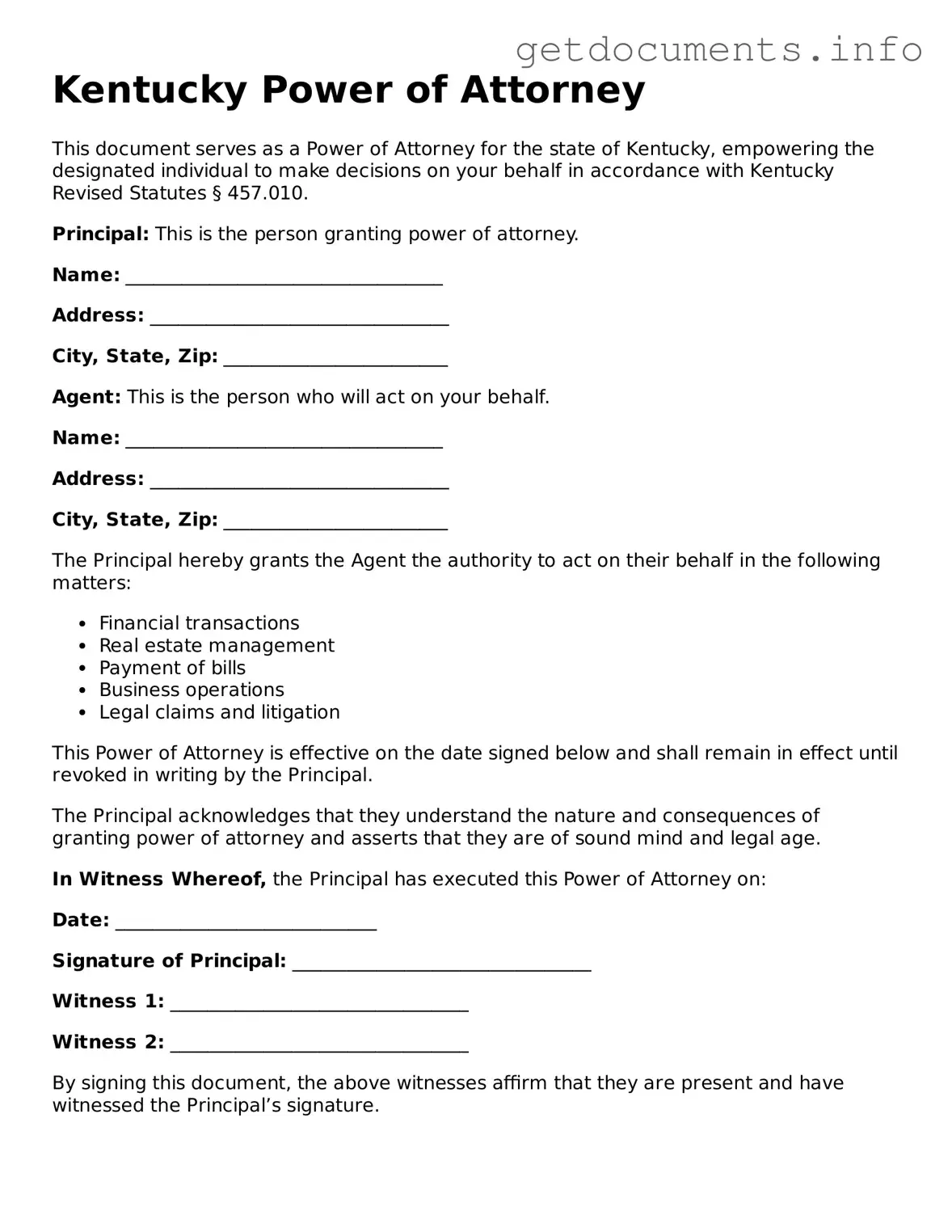Free Power of Attorney Template for Kentucky
The Kentucky Power of Attorney form is a legal document that allows one person to grant another person the authority to make decisions on their behalf. This form can cover various aspects, including financial matters and healthcare decisions, providing flexibility and control over personal affairs. If you're ready to take the next step, fill out the form by clicking the button below.
Access Power of Attorney Editor

Free Power of Attorney Template for Kentucky
Access Power of Attorney Editor
Got places to be? Complete the form fast
Fill out Power of Attorney online and avoid printing or scanning.
Access Power of Attorney Editor
or
⇩ PDF File
